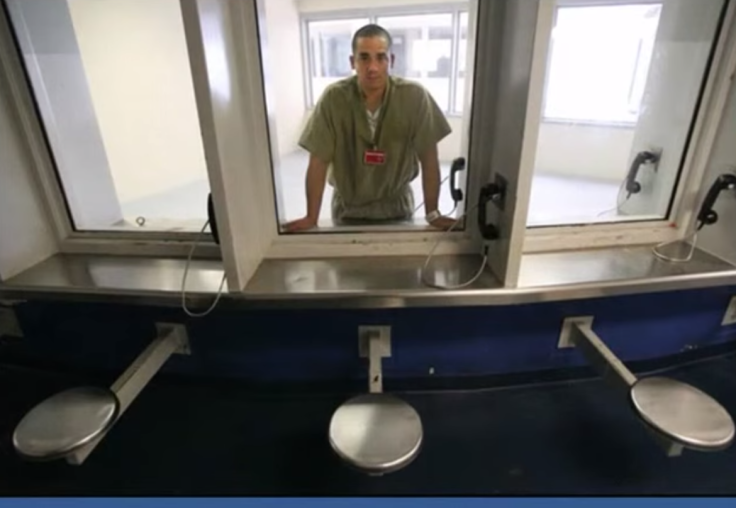Why Two of America’s Biggest Prison Tech Companies Are Battling Over Patents

For most Americans, paying a monthly phone bill is a nuisance, but not necessarily prohibitively expensive. In prison, things are different.
The phones, which are run by private companies, charge notoriously high rates. So high, in fact, that the Federal Communications Commission began regulating the industry in 2013, setting “rate caps” on interstate calls. The new rates, set at a maximum of $0.25 per minute, were welcomed by inmates and their families, less so by the prison technology companies that provide the service.
After all, it meant a reduction in their bottom line. So, like any business, they improvised.
Behind the scenes of the for-profit American prison business, two of the biggest technology companies that control the $1.2 billion industry of inmate phones calls -- Securus and Global Tel*Link -- are quietly enagaging in a massive battle. Their weapon of choice? Patents.
Over the last decade, Securus, which is valued at more than $1 billion, has been issued 130 patents, with more than 85 patent applications pending, according to CEO Richard Smith.
Many, if not most of the patents relate to inmate calling services; that is, how inmates and their families are billed for calls, how calls are recorded, and video calls. They're putting those patents to work. In an April 2015 press release, Smith boasted that Securus has recently “collected in excess of $50 million in license fees" from successful patent infringement cases against other prison technology companies.
“Our previous success rate in similar cases is a win-loss record is 16-0, so I would not bet against us prevailing,” Smith said in the release. “... We have done that in the past and expect to do that with GTL. Justice will prevail here – leave no doubt.”
Now, while Securus calls its competitors' use of prison phone technology “patent infringement,” GTL has a simpler definition for what its rival is doing: Blatant patent trolling for the sake of revenue.
“Securus' patent-trolling activity stifles innovation, imposes unnecessary costs and ultimately hurts the customer,” GTL CEO Brian Oliver said recently. (Oliver was not immediately available to comment; Smith did not respond to a request for comment.)
Last week, GTL issued its latest counterstrike to Securus’ patent infringement suits, issuing 10 more petitions with the U.S. Patent Office to “invalidate the core” of Securus’ patent portfolio. GTL asserts that many of Securus’ patents are so broad and so non-specific, the case should simply be thrown out of court. One example pointed out by GTL is that Securus holds a patent that “describes switching from a voice call to a video call.”
In its release, GTL noted somewhat wryly that “Securus did not invent the equivalent of FaceTime for inmates.”
The patent dispute underscores a broader theme in prisons today: Many private technology companies have recognized that the incarceration business -- an industry that has been labeled a “growth sector” -- is ripe for innovation, and numerous patents for new prison technologies like video visitations with inmates can be enormously lucrative.
Patents, after all, were created to protect intellectual property. But it's a fine line between intellectual property and transparent patent trolling for cash. Oliver hopes to end the litigation once and for all with his company's latest round of petitions.
"We believe that this latest action will, once and for all, bulldoze the patent tollbooth that Securus has used to impose what amounts to a cost-of-doing-business tax on the industry," the CEO of GTL wrote last week. "GTL seeks to expose these patents for what they are – a collection of ideas and inventions that others thought of first and which Securus wrongly claimed as their own."
© Copyright IBTimes 2024. All rights reserved.





















